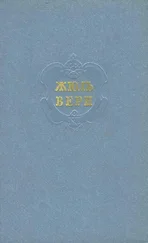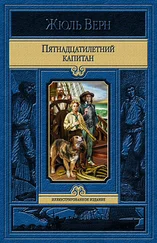It must be owned that the revised calendar was left to the professor’s sole use, and the colony was fairly puzzled whenever he referred to such unheard-of dates as the 47th of April or the 118th of May.
According to the old calendar, June had now arrived; and by the professor’s tables Gallia during the month would have advanced 27,500,000 leagues farther along its orbit, and would have attained a distance of 155,000,000 leagues from the sun. The thermometer continued to fall; the atmosphere remained clear as heretofore. The population performed their daily avocations with systematic routine; and almost the only thing that broke the monotony of existence was an occasional visit from the blustering, nervous, little professor, when some sudden fancy induced him to throw aside his astronomical studies for a time, and pay a visit to the common hall. His arrival there was generally hailed as the precursor of a little season of excitement. Somehow or other the conversation would eventually work its way round to the topic of a future collision between the comet and the earth; and in the same degree as this was a matter of sanguine anticipation to Captain Servadac and his friends, it was a matter of aversion to the astronomical enthusiast, who had no desire to quit his present quarters in a sphere which, being of his own discovery, he could hardly have cared for more if it had been of his own creation. The interview would often terminate in a scene of considerable animation.
On the 27th of June (old calendar) the professor burst like a cannon-ball into the central hall, where they were all assembled, and without a word of salutation or of preface, accosted the lieutenant in the way in which in earlier days he had been accustomed to speak to an idle school-boy, "Now, lieutenant! no evasions! no shufflings! Tell me, have you or have you not circumnavigated Gallia?"
The lieutenant drew himself up stiffly. "Evasions! shufflings! I am not accustomed, sir—" he began in a tone evidencing no little resentment; but catching a hint from the count he subdued his voice, and simply said, "We have."
"And may I ask," continued the professor, quite unaware of his previous discourtesy, "whether, when you made your voyage, you took any account of distances?"
"As approximately as I could," replied the lieutenant; "I did what I could by log and compass. I was unable to take the altitude of sun or star."
"At what result did you arrive? What is the measurement of our equator?"
"I estimate the total circumference of the equator to be about 1,400 miles."
"Ah!" said the professor, more than half speaking to himself, "a circumference of 1,400 miles would give a diameter of about 450 miles. That would be approximately about one-sixteenth of the diameter of the earth."
Raising his voice, he continued, "Gentlemen, in order to complete my account of my comet Gallia, I require to know its area, its mass, its volume, its density, its specific gravity."
"Since we know the diameter," remarked the lieutenant, "there can be no difficulty in finding its surface and its volume."
"And did I say there was any difficulty?" asked the professor, fiercely. "I have been able to reckon that ever since I was born."
"Cock-a-doodle-doo!" cried Ben Zoof, delighted at any opportunity of paying off his old grudge.
The professor looked at him, but did not vouchsafe a word. Addressing the captain, he said, "Now, Servadac, take your paper and a pen, and find me the surface of Gallia."
With more submission than when he was a school-boy, the captain sat down and endeavored to recall the proper formula.
"The surface of a sphere? Multiply circumference by diameter."
"Right!" cried Rosette; "but it ought to be done by this time."
"Circumference, 1,400; diameter, 450; area of surface, 630,000," read the captain.
"True," replied Rosette, "630,000 square miles; just 292 times less than that of the earth."
"Pretty little comet! nice little comet!" muttered Ben Zoof.
The astronomer bit his lip, snorted, and cast at him a withering look, but did not take any further notice.
"Now, Captain Servadac," said the professor, "take your pen again, and find me the volume of Gallia."
The captain hesitated.
"Quick, quick!" cried the professor, impatiently; "surely you have not forgotten how to find the volume of a sphere!"
"A moment’s breathing time, please."
"Breathing time, indeed! A mathematician should not want breathing time! Come, multiply the surface by the third of the radius. Don’t you recollect?"
Captain Servadac applied himself to his task while the by-standers waited, with some difficulty suppressing their inclination to laugh. There was a short silence, at the end of which Servadac announced that the volume of the comet was 47,880,000 cubic miles.
"Just about 5,000 times less than the earth," observed the lieutenant.
"Nice little comet! pretty little comet!" said Ben Zoof.
The professor scowled at him, and was manifestly annoyed at having the insignificant dimensions of his comet pointed out in so disparaging a manner. Lieutenant Procope further remarked that from the earth he supposed it to be about as conspicuous as a star of the seventh magnitude, and would require a good telescope to see it.
"Ha, ha!" laughed the orderly, aloud; "charming little comet! so pretty; and so modest!"
"You rascal!" roared the professor, and clenched his hand in passion, as if about to strike him. Ben Zoof laughed the more, and was on the point of repeating his satirical comments, when a stern order from the captain made him hold his tongue. The truth was that the professor was just as sensitive about his comet as the orderly was about Montmartre, and if the contention between the two had been allowed to go on unchecked, it is impossible to say what serious quarrel might not have arisen.
When Professor Rosette’s equanimity had been restored, he said, "Thus, then, gentlemen, the diameter, the surface, the volume of my comet are settled; but there is more to be done. I shall not be satisfied until, by actual measurement, I have determined its mass, its density, and the force of gravity at its surface."
"A laborious problem," remarked Count Timascheff.
"Laborious or not, it has to be accomplished. I am resolved to find out what my comet weighs."
"Would it not be of some assistance, if we knew of what substance it is composed?" asked the lieutenant.
"That is of no moment at all," replied the professor; "the problem is independent of it."
"Then we await your orders," was the captain’s reply.
"You must understand, however," said Rosette, "that there are various preliminary calculations to be made; you will have to wait till they are finished."
"As long as you please," said the count.
"No hurry at all," observed the captain, who was not in the least impatient to continue his mathematical exercises.
"Then, gentlemen," said the astronomer, "with your leave we will for this purpose make an appointment a few weeks hence. What do you say to the 62d of April?"
Without noticing the general smile which the novel date provoked, the astronomer left the hall, and retired to his observatory.
Chapter V
Wanted: A Steelyard
Under the still diminishing influence of the sun’s attraction, but without let or hindrance, Gallia continued its interplanetary course, accompanied by Nerina, its captured satellite, which performed its fortnightly revolutions with unvarying regularity.
Meanwhile, the question beyond all others important was ever recurring to the minds of Servadac and his two companions: were the astronomer’s calculations correct, and was there a sound foundation for his prediction that the comet would again touch the earth? But whatever might be their doubts or anxieties, they were fain to keep all their misgivings to themselves; the professor was of a temper far too cross-grained for them to venture to ask him to revise or re-examine the results of his observations.
Читать дальше
![Жюль Верн Off on a Comet [Hector Servadac] обложка книги](/books/30131/zhyul-vern-off-on-a-comet-hector-servadac-cover.webp)










![Жюль Верн - Властелин мира [сборник]](/books/407848/zhyul-vern-vlastelin-mira-sbornik-thumb.webp)
